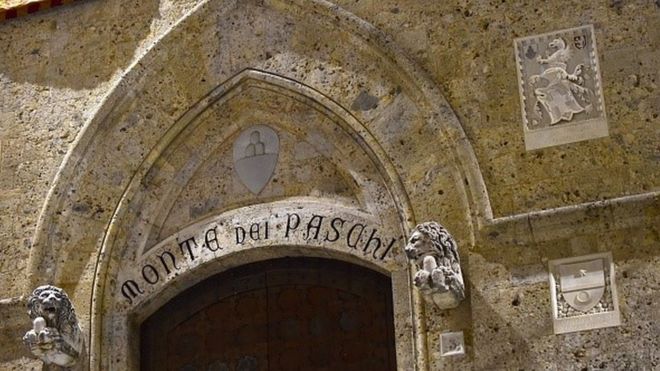Desperate to safe an embattled financial sector, the Italian parliament has approved a government proposed €20bn (£16.8bn) bailout of the country's banks.
The Italian Treasury will more likely have to rescue Italy's third largest lender, Monte dei Paschi, by the end of next week. The rescue fund will be used to boost other banks as well.
Earlier, Monte dei Paschi disclosed that it could run out of funds by next April, using up nearly €11bn (£9.2bn). It had earlier claimed to have funds to stay afloat for 11 months. It added that by next May, it could use even more - €15bn (£12.6bn) in total.
Founded in 1472, Monte dei Paschi is probably the oldest surviving bank in the world. The bank suspended its shares trading at one stage on Wednesday, when they plummeted to their lowest level since the bank's stock market flotation in 1999.
Monte dei Paschi failed a European Union stress test in July because it has billions of euros of risky loans on its books, issued to clients who not in the position to repay them. The situation has deteriorated ever since.
It has been trying to raise €5bn (£4.2bn) in fresh capital by the end of the month to stage its own rescue, but has at the moment succeeded in raising only €500m (£420m). If the bank cannot facilitate a successful private sector bailout, the Italian government will probably step come to its aid.
The new Italian prime minister, Paolo Gentiloni, has vowed not to let Monte dei Paschi go bankrupt, for fear that its fall could collapse the rest of Italy's heavily indebted banking sector. More so, the bank’s failure would threaten the savings of thousands of Italian citizens.
The funds for the government bailout have been approved by both the lower and upper houses of the Italian parliament. The parliamentary measure said that the government could borrow the required money to provide "an adequate level of liquidity into the banking system" and that the government could support a lender's finances by "underwriting new shares".
Italy’s finance minister, Pier Carlo Padoan, in reaction to concerns over the proposed government bailout said that the impact on savers of a state bail-out would be "minimal or non-existent".
Â





